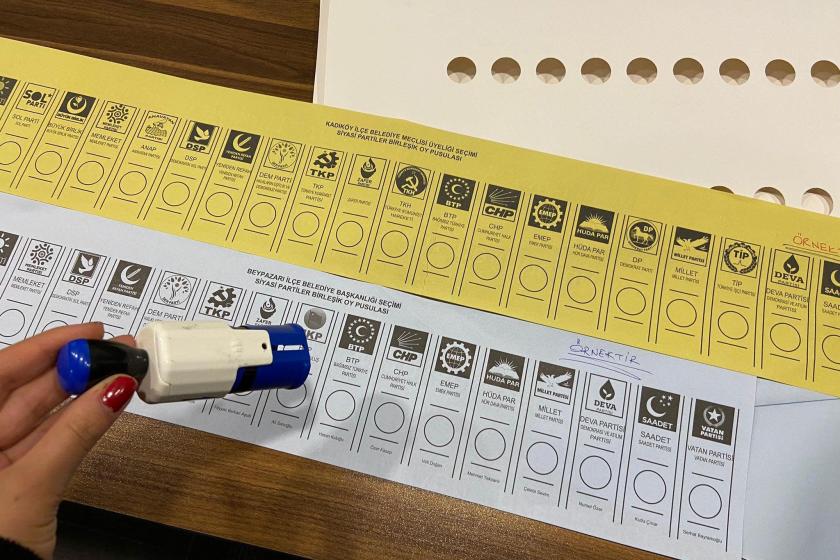According to its former employees, Facebook is having difficulty hiring talented young people following the Cambridge Analytica scandal. According to a report by Salvador Rodrigez broadcast on CNBC on 16 May, the scandal in which it was instrumental in users’ personal data being employed for politically oriented campaigning has left brilliant new graduates in the US with a grudge against the world’s largest social media company. Certain candidates are withholding applications out of concerns over its leadership, too, as well as the company’s general culture. Alongside those saying they don’t want to join the company that was responsible for getting President Donald Trump elected, there are also those who express unwillingness to work for Trump-supporting Peter Thiel, one of the company’s investors.
The past decade has seen privacy and surveillance present to an ever-increasing degree among causes for concern in our lives. Our anxiety-ridden mums are not to be faulted for saying, “Let’s not talk about these things on the phone, pet.” After all, a significant part of the Gezi indictment consists of phone calls made by the accused among themselves, despite Prosecutor Muammer Akkaş, who initiated the investigation and applied for telephone interception, having been dismissed, fleeing the country and even still being wanted. Moreover, the investigation in that period resulted in the dropping of charges and the trial brought against the Çarşı group ended in acquittal. But, be what may, the investigation that Akkaş launched has been wiped clean of its FETO traces and had its value restored. It appears that FETO traces are wiped clean but citizens’ traces are retained in the state that has fallen victim to “survival” concerns.
Turkey undertook to draft a statute within one year on personal data protection under the National Programme in 2003 within the EU harmonization of law process. In conjunction with the statute, an independent Personal Data Protection Board was also to be created. Both the statute and the board waited long years. A draft law was compiled in 2012 but what emerged fell well short of international standards. The fundamental concern of the draft was the country’s “geopolitical position” and “national security.” Meanwhile, the independence of the Personal Data Protection Board was ditched and its attachment to the Ministry of Justice was envisaged. The Presidential State Supervisory Council issued a report on 27 November 2013 and pointed to the urgency of the matter. One of the most poignant sentences of the report was, “All address and identification particulars of some fifty million people having the status of voters are given to political parties ‘that apply.’”
In the end, the Law on the Protection of Personal Data took effect in 2016. However, it must of course not be forgotten that previously, in 2014, Ministry of National Education officials copied pupils’ private data through the e-school and sold it, and there was also a confession in the same year that personal data in the Health Ministry’s possession had been sold by the Social Security Institution for seventeen million lira. In 2013, intelligence agency undersecretariat functionary Ahmet Cemalettin Çelik was appointed to head the telecommunications and communications department. Under amendments to the intelligence agency law that took effect in the next year, the monitoring, storage and processing of all personal data of the country’s citizens became legal. One year after the coup attempt, the intelligence agency undersecretariat was attached to the president’s office.
For the past two or three years nearly all companies have been busy coping with bringing customer data into compliance with Protection of Personal Data Law. Huge fines await those that do not act in compliance with the law. So, has this law brought about change in our lives, that is of us the citizenry? For example, to what extent has there been a reduction in the emails, messages and phone calls we get from entities with which we have never shopped or have no intention of doing so and which we have never willingly supplied with our personal data? Moreover, why does information about the CNN Türk broadcast on which the ruling party’s Istanbul Metropolitan Mayor candidate is to be the guest of the evening come as a message to my phone? How does it happen that private data smacking of surveillance right up to place and date of birth of opposition parties’ municipal assembly members can also find inclusion on the pages of the ruling party media at election times?
The situation goes well beyond the abuse of personal data for the purposes of commercial benefit or political campaigning. The speech made in parliament on 14 May by the HDP’s Supreme Election Council Representative and Batman MP Mehmet Rüştü Tiryaki is most important. Tiryaki asserted that the evidence the AKP submitted to the Supreme Election Council to object to the Istanbul election had been gathered unlawfully from the Interior Ministry, Health Ministry and Justice Ministry in a manner contrary to the Personal Data Protection Law. Indeed, presenting their objection submission as proof, he showed that they had also got hold of the personal data of not just polling station committee members, but of their families and acquaintances.
Under an amendment to the Regulation on the Working Procedures and Principles of the Personal Data Protection Board promulgated last Friday in the Official Gazette, the structure of the Personal Data Protection Board was changed. Henceforth, five members of the Board will be nominated by parliament and four members by the President. Since there is no need to waste breath describing the situation in parliament, it can be said for short that personal data has now been entrusted in full to Erdoğan.
Let me end with a final reminder. Erdoğan’s policy in relation to the media changed after 2007. Gaining the upper hand in his struggle against the military tutelage, he threw away the carrot and started to take up the struggle directly with the stick. The matter of personal data assumes importance as to how voters will be persuaded using the available data in the 23 June electoral process. It is hard to promise voters economic wellbeing with even the Central Bank’s contingency reserve known as the “shroud money” of forty billion lira having been transferred to the budget. The remark, “You feed them and they still don’t give their votes” is the most important indicator that both the graft and time on the throne have ended, if not indeed all room for manoeuvre.
It is not too wide of the mark, either, to say that no signal at all has been given that steps will be taken in the direction of democratization and, thus, considering it has no expectation whatsoever of votes from the opposing wing privacy is currently a matter of concern mainly for AKP voters. Old scores are starting to be raked up in the internecine quarrel in the AKP and more is to come.
What a more general picture that extends beyond the election shows, however, is that as authoritarianism increases our personal data will attain even greater functionality as a surveillance component. We are heading for a dystopia in which we will even be bereft of the opportunity to reply to our decontextualized sentences that we see somewhere or other. Facebook may perhaps be unable to lose brilliant employees, but what they can do with our data is not limited to winning elections. The matter of privacy serves as a litmus paper for all manner of ruling party duplicity ever since the controversy started.
(Translated by Tim Drayton)



